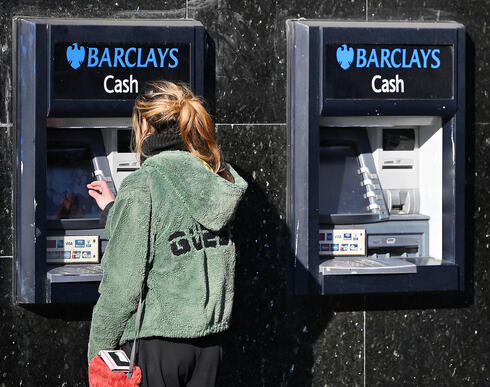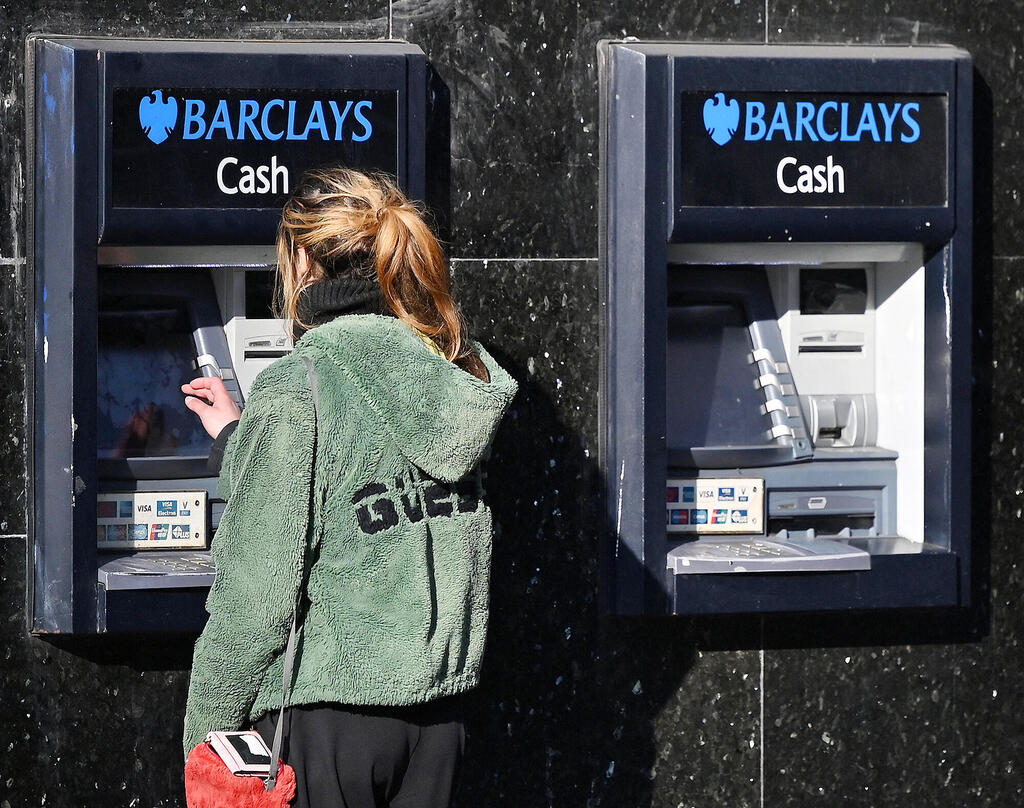
ISRAEL AT WAR
Terror fundraiser: Even after the massacre, Hamas keeps collecting donations through crypto and banks
Although the Israeli police announced the freezing of the terrorist organization's accounts in crypto and Barclays Bank, access has been opened again and donations are flowing in. The cutting of resources of global enforcement bodies is a major factor that makes this possible
A post on X (previously Twitter) by an anonymous user with many followers protested against a bank account that receives donations to the Hamas organization. The post seems almost desperate, and it’s not by accident. Given that the Israel Police only recently announced the freezing of Hamas' crypto and Barclays accounts, the question arises as to how they gained access to the system so quickly and whether the authorities in Israel and other countries will be able to close these accounts permanently.
Presumably, where an anonymous user found a bank account, larger organizations will find additional accounts, most likely also crypto accounts. It seems almost inevitable that terrorists or other criminal organizations will work tirelessly to gain a foothold in the global financial system. After all, financing is their soul. But the ability of Hamas, as well as other terrorist and criminal organizations, to repeatedly crack the protective shell, so to speak, of large financial organizations, is not, as the saying goes, a bug, but a feature.
1. The crypto market
The one who got the worst reputation is of course the crypto market, the "alternative" financial system that has gained more and more popularity in recent years. From the beginning, this market appealed to those who were looking for decentralized and anonymous alternatives to the state. A route that bypasses not only the centralized management of governments but the entire monetary system they built, including the type of exchange currency. Of course, there are those who are interested in such a distribution for reasons of privacy and not for criminal reasons.
At the same time, the structure of the market made it possible to hide criminal activity and stuck to it the taint of a system that serves criminals. This stain very rightly sticks. Half of North Korea's missile program is estimated to be funded by crypto-crime, 90% of China's fentanyl drug industry uses crypto to do business with drug cartels, and crypto wallets linked to Hamas and Islamic Jihad are estimated to have collectively received more than $130 million in assets digital in the two years before the attack, including millions of dollars in the months leading up to it.
In the last two years, the regulatory pressure on this market has increased significantly, and a number of companies, their founders, and employees have found themselves fighting for their good name against the background of criminal records in courts around the world. Some are already serving prison terms. In view of the growing pressure and efforts of regulators around the world to curb the use of crypto to launder money for small and large criminals and terrorists, the methods of the crypto market to evade law enforcement are also being refined.
Thus, for example, when it became clear that the authorities were able to track crypto assets, the idea of the "mixer" was invented, a service to which coins are flowed so that they are mixed with each other, and then flowed to the original recipients with the aim of obfuscating the source and destination of the assets. In the same spirit of "confounding the enemy", crypto exchanges have begun to operate through a long line of extremely convoluted business entities. Each is registered in a different country, allegedly managed by different people, and receives banking services from multiple sources. All this so that the CEO and the founder, their origin, and the regulatory rules that should apply to them are not revealed.
The ambiguous structure accompanied by the characteristics of the system, which emphasizes anonymity, made fundraising through this channel particularly blatant. Hamas, defined as a terrorist organization by most Western countries, is still asking for crypto donations on Telegram today, after having carried out the largest massacre in Israel's history. "The reality of jihad is an investment of effort and energy, and money is the backbone of war," they wrote in the latest recruitment campaign on Telegram, where they included their crypto wallet number.
2. The traditional system
One would expect this to happen with crypto, an encryption technology that law enforcement pursues with its notoriously clumsy slowness. But what about the global banking system? How does Hamas come back and divert some of the donations it receives to bank accounts in this old and highly supervised system? The answer, unfortunately, is that the global financial system (although you may claim otherwise) is also structured in a way that will serve the few and allow them to hide, maintain anonymity, and in some ways also evade enforcement authorities.
This is of course a serious fault. After all, how is it possible that one of the most monitored systems in the world is built to serve terrorism? Well, of course, this is not its original purpose, just as the crypto market did not arise to serve such organizations. But just like the crypto market, parts of the traditional financial system have been designed with the thought of serving those who wish to maintain their privacy and the movement of their funds. Unfortunately, this structure has also been exploited by criminals and terrorist organizations consistently for years. The numbers clearly prove this: according to a recently published report by the United Nations Office on Drugs and Crime (UNODC), 2-5% of global GDP is laundered every year. These percentages represent between $800 billion and $2 trillion that slip under the radar by unsanctioned means through the global banking system, and an estimated 1% is laundered through the crypto market.
In these giant mechanisms, banks play a central role. Thus, these days, the Central Bank of Singapore reported the local banks' part in a money laundering scandal amounting to $1.8 trillion. Last May, the International Corporation of Investigative Journalists (ICIJ) found that, according to documents received from the world's largest banks, these allowed criminals to launder more than $2 trillion in the years 1999-2017. At the end of 2022, it was revealed that Credit Suisse apparently allowed drug dealers to launder 150 million Swiss francs through it. In 2018, the CEO of Danske Bank, the largest in Denmark, resigned for the financial institution's part in laundering $234 billion. In the same year, the enforcement authorities in Germany raided the offices of Deutsche Bank on suspicion of money laundering.
The list of the small banks, but mainly the big ones, that were found to have taken an active part in money laundering mechanisms - is long. Almost every year a new scandal is revealed, and the scope of the cases only grows. Thus, even though the emphasis is placed on crypto as a channel for money laundering, the larger laundering mechanism is actually the traditional financial system.
3. Enforcement authorities
The design principles of the financial systems produce an endless loop of "whack-a-mole". Every time an enforcement authority identifies a new Hamas account at Barclays or a crypto exchange and strikes it, a new account will immediately appear, sometimes at the same bank. The only response to the situation is to activate mechanisms to fight money laundering. Unfortunately, these mechanisms struggle to withstand the sophistication and creativity of criminals, terrorists, and tax evaders. This is mainly due to the starvation of the enforcement mechanisms over the years.
Today, the bodies in charge of this issue operate in the reality of limited human and financial resources, as well as an uneven regulatory system that creates coordination problems. Thus, for example, a report by the European Commission found "institutional fragmentation and poor coordination" between the countries and a slow response, partly due to a lack of resources. In the United States just last month, an internal control organization warned that the authorities are failing to keep up with financial crimes, including money laundering capital of cartels and other criminal organizations, this is due to the complexity of the events in view of the lack of funding and personnel. As long as the situation continues, we will have no choice but to rely on anonymous posters to locate new accounts of terrorist organizations.















